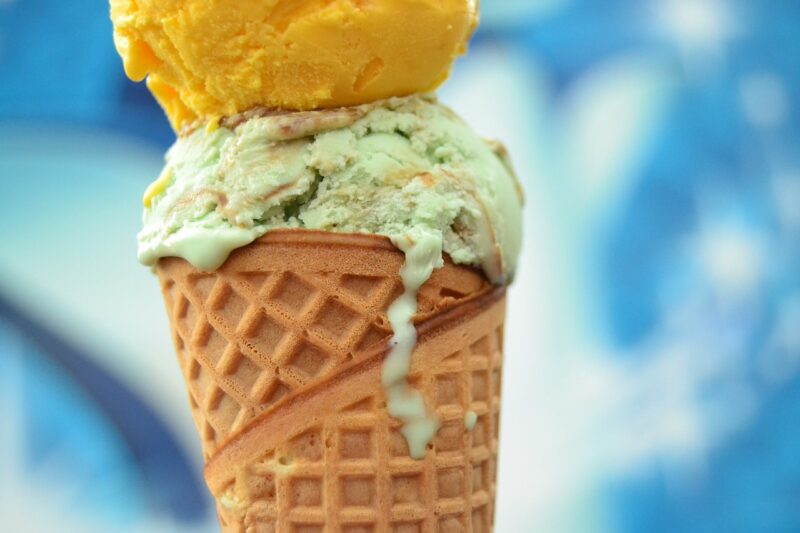The Science Behind Brain Freeze and Why It Happens When Eating Ice Cream
November 16, 2024

We’ve all experienced it: that sharp, sudden pain shooting through our heads after indulging in a cold treat like ice cream, slurpees, or frozen yogurt. Known colloquially as a “brain freeze,” this uncomfortable sensation not only leaves us wincing but also piques our curiosity about its cause. Why does this happen? What is happening in our bodies during this momentary torment? Let’s dive into the fascinating science behind brain freeze and explore why it occurs when you enjoy your favorite cold dessert.
1. What Is Brain Freeze?
Brain freeze, scientifically referred to as sphenopalatine ganglioneuralgia, is a type of headache triggered by the rapid consumption of cold substances. The sensation typically lasts for a few seconds to a minute but can feel extremely intense. You might find yourself halting mid-scoop, gripping your forehead, and wishing for relief as the pain radiates from your palate to your brain.
2. How Brain Freeze Occurs: The Mechanism Behind It
Understanding brain freeze requires a look at how your body responds to sudden changes in temperature. Here’s how it happens:
- Rapid Cooling of the Palate: When you consume something cold, it cools the roof of your mouth, or the palate, rapidly. This sudden drop in temperature causes blood vessels in the area to constrict.
- Rebound Vasodilation: Once the blood vessels constrict due to the cold, they will rapidly dilate to warm up again. This rapid dilation can create a feeling of pressure or pain in adjacent areas because of the nerve response.
- Nerve Reaction: The nerves in the mouth, particularly the trigeminal nerve, are responsible for sensation in the face. When a sudden extreme cold stimulus is applied, the nerve sends signals that may confuse the brain, leading you to feel pain in your forehead, which is often distant from the source of the trigger.
This complex interaction makes brain freeze an interesting symptom of how our body reacts to temperature changes.
3. Who Is Most Prone to Brain Freeze?
Everyone is susceptible to brain freeze, but certain groups may notice it more frequently. Children, for example, might be particularly prone to brain freeze because they often consume cold treats quickly without considering the temperature of what they’re eating. Additionally, those who suffer from frequent migraines may perceive the pain differently, making brain freeze feel more intense for them due to their overall sensitivity to headaches.
4. How to Prevent Brain Freeze
If you’ve experienced brain freeze and wish to avoid it in the future, here are some tips to help:
- Eat Slowly: Allow your mouth and palate to adjust to the cold by taking smaller bites and letting the treat warm up slightly before swallowing.
- Warm Your Mouth: If you feel the onset of a brain freeze, pressing your tongue against the roof of your mouth can help warm the area and relieve discomfort more quickly.
- Choose Softer Treats: Opt for slightly warmer alternatives like soft serve or let your ice cream sit for a bit before digging in to reduce the impact of the extreme temperature.
By following these strategies, you can enjoy frozen delights without the nagging threat of brain freeze looming over you.
5. The Positive Side of Brain Freeze
While brain freeze can be uncomfortable, many people enjoy the nostalgia and experience associated with consuming ice cream or slushies. It can be viewed as a small price to pay for indulgence, and this sensation may even enhance the pleasure associated with enjoying cold treats. It can remind us to savor our delicious desserts—mindfully and slowly next time.
Conclusion: Embracing the Science of Brain Freeze
The next time you indulge in ice cream or other cold treats, you can appreciate the science behind brain freeze. The rush of pain serves as a reminder of your body’s remarkable responses. While it might not feel enjoyable at the moment, understanding the mechanism can provide insights into the intricate ways our bodies interact with our environment. So, the next time you crave that cold dessert, have fun and remember: slow down to avoid brain freeze!
Embrace the chill, but at your own pace, and enjoy your favorite frozen treat the right way while keeping brain freeze at bay!







